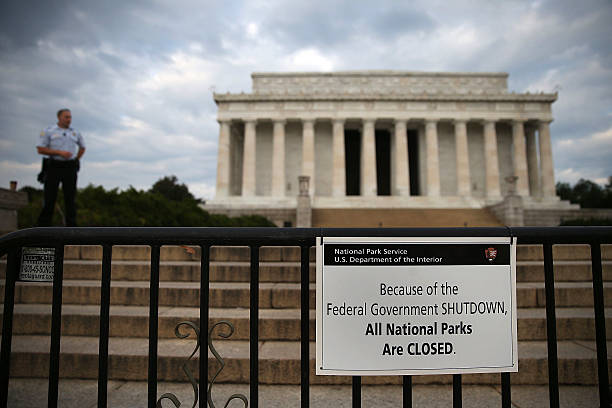
On Friday, the United States Senate failed to extend funding to United States government functions when Democrat Senators unanimously blocked the passage of a continuing resolution for government funding absent funding support for DACA (Deferred Action for Childhood Arrivals). As with all typical government verbiage, the relatively mundane language of DACA belies its controversial roots, the acceptance of the presence of individuals who have circumvented the immigration laws of the United States. The funding arc for the estimated 800,000 individuals affected under DACA placed at risk a policy initiated by the Obama administration in 2012 that circumvented another extra-legal reality, the application of principles of a law that was never passed, the DREAM act ( Development, Relief and Education for Alien Minors) , a proposed law put forth in 2001 that has failed several attempts to be passed into law.
And so results the current narrative, the unwillingness to fund the government to assure the passage of funding for a program to protect and support work visas for individuals who entered the country illegally on the basis of a law that has been implemented extra-legally as it has never passed into law.
How did we get into this mess? The weeds of obscuring the birth of such dysfunction are thick but the underlying causation is relatively straight forward. The founders envisioned a constitutional process of checks and balances that would encourage the vetting of ideas and develop maturation of ideas into principled law. For a bill to become law, sufficient consensus and compromise would have to be present to secure passage. A representatives to the legislative branch were assumed to represent their all their constituents’ voices, there was always expectation that coalitions would develop that would overcome rigid ideological obstruction. In Robert Caro’s monumental treatise on the path to civil rights legislation, Master of the Senate, Caro meticulously lays out how Senate Majority Leader Lyndon Johnson developed the cross party coalitions necessary to overcome decades of obstruction and achieve the legal basis for instituting critical civil rights reform that the broader nation would acknowledge as the accepted law of the land. He recognized the simply declaring moral imperative would not be sufficient for the nation to accept actions of the government to direct the behaviors of the nation as a whole. It would take laws that survived the gauntlet of the cacophony of opinions that existed in the country. He understood that the moral basis for conversion of the country’s direction would come from all elements of the country seeing the process through to a legislative conclusion.
The current imbroglio is inevitable outcome of special interest groups having been rewarded in the recent past for confusing their assumed moral imperative sufficiently righteous for the achievement of their outcomes without having to work in the arena of debate and compromise. Immigration policy has been a controversy since the origin of the nation borne on the concept of a nation of immigrants subsuming the native population. Various periods of rapid population growth have had periods of intervening restriction as the nation has worked towards absorbing the new contributors and assimilating them into the fabric of the present population. It has worked because the principle of rule of law was accepted by all, and when considered no longer pertinent to current considerations, changed as a process of law. Since the 1980’s, radicalization by progressives of the process to re-orient society based on removal of enforcement of immigration law circumvented the society’s concern as to the speed of change, and ignored any arguments to the contrary as impediments to the assumed moral righteousness of the cause of societal change, regardless of societal damage or lack of consensus. The inevitable reaction reached high tide in 2016, when the country voted to install a President who would stand athwart the forced re-orientation of society. The reaction found its muse in Trump and its symbol of resistance the Wall, that would physically force the rule of law on those elements of governmental bureaucracy had become so enamored with distorting the law to effect the means of societal re-modeling.
Now, we stand at a crossroads, where the legitimate concerns of the nation to assure the lawful assimilation of those who seek to come to the country for its perceived unique principles of foundation can be secured, while providing humanitarian understanding for those who find themselves in an untenable position based on the actions of their parents many years ago. The way forward on difficult issues is always a path of careful compromise assuring larger principles of fairness and balance based on rule of law.
Sit down, and hash out a law, and the nation will follow it. Press forward with the age of uncompromising agendas driven on ideology rather than the principles of the founding, and we will see walls go up permanently at locations other than our borders.